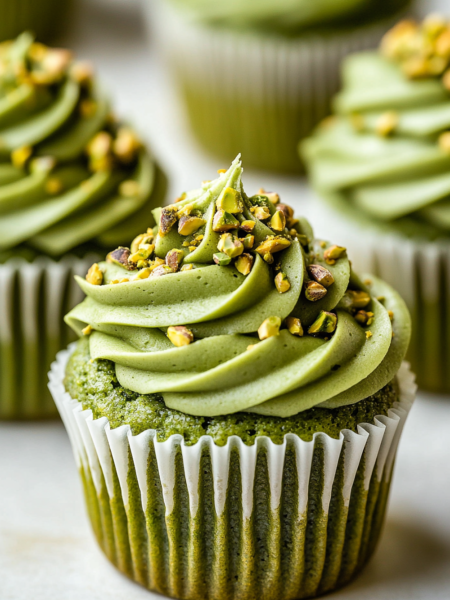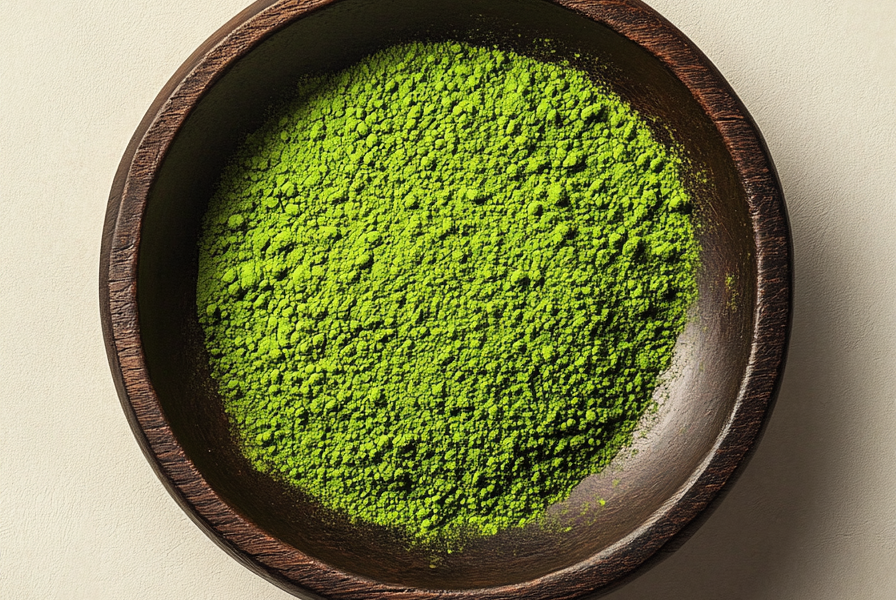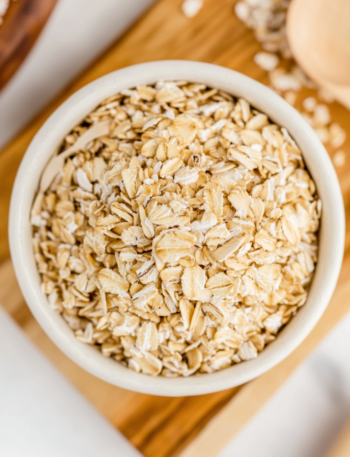What is Matcha?
Matcha is a unique form of powdered green tea that has gained significant attention in health and wellness circles. Originating from Japan, this finely ground green tea powder has a rich history dating back to the Tang Dynasty, where it was first consumed by Chinese monks to enhance their meditation practices. Over the centuries, matcha was refined and popularized in Japan, particularly within the traditional tea ceremony.
What sets matcha apart from regular green tea is the manner in which it is cultivated and prepared. Matcha comes from the Camellia sinensis plant, but its leaves are grown under shade for several weeks prior to harvesting. This shading process boosts the production of chlorophyll and amino acids, especially L-theanine, which contributes to matcha’s vibrant green color and distinctive umami flavor. After harvesting, the leaves are steamed to prevent oxidation, dried, and finally ground into a fine powder.
The preparation of matcha involves whisking the powdered tea with hot water until it becomes frothy. Unlike regular green tea, where the leaves are steeped in water and then discarded, matcha is consumed in its entirety, allowing individuals to benefit from the full spectrum of nutrients present in the leaves. This method of consumption leads to a more concentrated intake of antioxidants, vitamins, and minerals, enhancing its health benefits.
Due to its unique characteristics and preparation method, matcha has become increasingly popular among health enthusiasts. The rise of matcha lattes, smoothie bowls, and baked goods signifies its integration into various diet trends. As people become more health-conscious, they are more inclined to explore the wellness advantages that matcha can provide, from improved mental clarity to enhanced energy levels.
Rich in Antioxidants
Matcha, a finely ground powder made from specially grown and processed green tea leaves, is renowned for its rich antioxidant content. Among these antioxidants, catechins are the most significant, playing a vital role in promoting overall health. Antioxidants, including catechins, are compounds that help neutralize free radicals—unstable molecules that can cause cellular damage and contribute to various health issues, including chronic diseases and aging.
The presence of catechins in matcha is noteworthy; in fact, matcha can contain up to 137 times more catechins than traditional brewed green tea. This high concentration makes matcha an exceptionally potent source of antioxidants. By incorporating matcha into one’s diet, individuals can potentially enhance their body’s ability to combat oxidative stress, which is linked to the development of age-related diseases such as cancer, heart disease, and neurodegenerative disorders.
Beyond systemic health benefits, the antioxidant properties of matcha can also promote healthier skin. The catechins in matcha may help protect the skin from harmful UV rays and reduce inflammation, leading to improved skin tone and texture. Furthermore, their antibacterial and anti-inflammatory properties can aid in treating acne and other skin conditions, contributing to a clearer, more youthful complexion.
Consuming matcha regularly can be an effective strategy for those looking to bolster their overall wellness. By integrating matcha, a rich source of antioxidants, into one’s diet, individuals can reap significant benefits, including enhanced cellular protection and improved skin health. As a versatile ingredient, matcha can be enjoyed in various forms, such as lattes, smoothies, and even baked goods, making it easier to incorporate into a health-conscious lifestyle. This encouraging profile of matcha reinforces its status as a powerful ally in the pursuit of optimal health.
Boosts Metabolism and Weight Loss
Matcha, a powdered green tea renowned for its vibrant color and distinct flavor, has gained notoriety for its potential health benefits, particularly concerning metabolism and weight management. The key component in matcha, catechins, particularly epigallocatechin gallate (EGCG), is pivotal for increasing metabolic rates. Research has demonstrated that catechins can stimulate thermogenesis, a process where the body generates heat and burns calories, thereby aiding in weight loss.
In numerous scientific studies, participants consuming matcha exhibited a notable uptick in fat oxidation during exercise. A 2010 study published in the “American Journal of Clinical Nutrition” indicated that men who ingested matcha prior to physical activity experienced a significant increase in fat burning compared to those who did not consume it. This suggests that integrating matcha into a fitness regimen could enhance overall performance and efficiency in burning calories, making it an effective aid for weight management.
Additionally, matcha can support weight loss through appetite regulation. The consumption of matcha can create a sensation of fullness, reducing the likelihood of overeating. Incorporating matcha into daily routines is relatively simple; it can be enjoyed as a warm beverage, blended into smoothies, or used as an ingredient in baking recipes. However, it is crucial to maintain a balanced diet and regular exercise alongside matcha consumption to optimize weight loss efforts.
As with any supplement, the effects of matcha may vary from person to person. It is advisable to consult with a healthcare provider before making significant changes to one’s diet or fitness regimen. When consumed responsibly, matcha not only enhances metabolism but also provides a nutritious addition to a weight loss strategy.
Improvements in Mental Clarity and Focus
Matcha, a finely ground green tea powder, is recognized not only for its vibrant color and distinct flavor but also for its remarkable cognitive benefits. The unique composition of matcha contains caffeine combined with L-theanine, an amino acid that promotes relaxation without drowsiness. This blend results in enhanced mental clarity and improved focus, making matcha a popular choice among those seeking a cognitive boost.
The caffeine in matcha acts as a stimulant, increasing alertness and energy levels. However, unlike traditional coffee, which can lead to jitteriness or a subsequent crash in energy levels, the L-theanine in matcha mitigates these effects. This amino acid fosters a state of calm alertness, allowing individuals to concentrate better while reducing anxiety and stress. Consequently, consumers often report experiencing a more stable energy boost and prolonged attention span after consuming matcha.
Scientific studies have indicated that the consumption of matcha may lead to enhanced cognitive function. One study highlighted that participants who consumed matcha showed improved performance in attention, memory, and processing speed tasks. These findings suggest that incorporating matcha into one’s daily routine could be beneficial for students, professionals, or anyone looking to enhance their productivity.
Furthermore, the antioxidants found in matcha, particularly catechins, have been linked to the prevention of cognitive decline. Regular consumption of matcha may contribute to long-term brain health, providing enhanced clarity and focus not just in the short term but also as one ages. By opting for matcha over other caffeinated beverages, individuals may experience a natural, sustained boost in mental performance, positioning it as a strategic addition to a wellness-oriented lifestyle.
Supports Heart Health
Matcha, a finely ground powder made from specially grown green tea leaves, has garnered attention for its numerous health benefits, including its positive effects on cardiovascular well-being. Recent research suggests that the consumption of matcha may assist in lowering cholesterol levels, enhancing blood vessel function, and potentially reducing blood pressure, all of which contribute to improved heart health.
One key area of focus in heart health is cholesterol management. Studies have indicated that the catechins present in matcha, particularly epigallocatechin gallate (EGCG), can help lower low-density lipoprotein (LDL) cholesterol, commonly referred to as “bad” cholesterol. Lower levels of LDL cholesterol can mitigate the risk of heart disease and stroke, promoting overall cardiovascular health. Furthermore, the antioxidant properties of matcha may enhance the body’s ability to process and eliminate harmful substances that can impair heart function.
In addition to regulating cholesterol, matcha has been shown to improve endothelial function, which is crucial for maintaining healthy blood vessels. A well-functioning endothelium helps regulate blood flow and blood pressure, thereby supporting heart health. Furthermore, a study published in the American Journal of Clinical Nutrition found that regular consumption of green tea, including matcha, is associated with a reduced risk of cardiovascular disease.
To incorporate matcha into a heart-healthy diet, individuals can start by adding matcha powder to smoothies, oatmeal, or yogurt, or enjoying it as a traditional tea. Many people find that substituting matcha for sugary drinks can also contribute to overall health improvements. As with any dietary changes, it is advisable to consult a healthcare professional for personalized recommendations.
In conclusion, the incorporation of matcha into daily nutrition can support heart health through its cholesterol-lowering abilities, enhancement of blood vessel function, and potential reduction in blood pressure, making it a valuable addition to a heart-conscious lifestyle.
Boosts Immune Function
Matcha, a finely ground powder derived from specially cultivated green tea leaves, is not only revered for its vibrant color and unique flavor but also for its health-enhancing properties. One significant advantage of incorporating matcha into one’s diet is its potential to boost immune function, thereby contributing to overall well-being. This enhancement can primarily be attributed to its rich content of antioxidants, particularly catechins, which possess strong anti-inflammatory and immune-regulating characteristics.
The most notable catechin found in matcha is epigallocatechin gallate (EGCG), which has been extensively studied for its impact on immune health. EGCG has the ability to modulate immune responses, thereby helping the body to fight off infections more effectively. By reducing inflammation, it provides support to various immune cells, ensuring they function optimally. Furthermore, the anti-inflammatory properties of matcha can contribute to balancing the immune system, preventing it from becoming overactive, which can lead to autoimmune disorders.
Regular consumption of matcha may also support the body’s ability to fend off common illnesses. Studies have suggested that the antioxidants found in matcha can enhance the production of specific immune cells, improving the body’s response to pathogens. Additionally, the unique combination of vitamins, minerals, and amino acids present in matcha, particularly L-theanine, can further boost immune function by reducing stress, a known contributor to weakened immunity.
Incorporating matcha into daily routines may not only provide a pleasant and revitalizing beverage option but also serve as a strategic approach to bolster one’s immune defense. By supporting immune function through its powerful compounds, matcha can aid individuals in maintaining resilience against seasonal ailments and contribute positively to overall health.
Promotes Skin Health
Matcha, a finely ground powder derived from green tea leaves, is increasingly recognized for its myriad health benefits, particularly concerning skin health. One of its notable properties is its rich concentration of antioxidants, notably catechins, which play a crucial role in mitigating skin aging. These antioxidants work by combatting oxidative stress and neutralizing free radicals, fundamental contributors to skin deterioration over time. By regularly incorporating matcha into one’s skincare routine, individuals may experience enhanced skin vitality and a more youthful appearance.
In addition to its anti-aging benefits, matcha has demonstrated significant anti-inflammatory properties. Regular use of matcha can potentially reduce inflammation and redness, making it an excellent choice for individuals with sensitive skin or conditions such as rosacea. The soothing effects of matcha can help calm irritated skin, promoting a more even complexion and reducing the likelihood of flare-ups. Its anti-inflammatory mechanisms are a key reason why skincare products infused with matcha are becoming commonplace in the beauty industry.
There are various ways to incorporate matcha into topical applications for optimal skin health. One effective method is to create a matcha facial mask. This can be achieved by mixing matcha powder with natural ingredients such as yogurt or honey to form a paste. After applying the mask to the face and allowing it to sit for about 10-15 minutes, users can rinse it off to reveal refreshed and revitalized skin. Additionally, some skincare products now feature matcha as a primary ingredient, providing a convenient option for those looking to harness its benefits without the need for DIY formulations.
Incorporating matcha into one’s daily skincare ritual can promote a radiant complexion while leveraging its powerful health benefits.
How to Prepare and Use Matcha
Preparing matcha is a simple yet artful process that can be approached through traditional and contemporary methods. To begin with, the traditional method involves using a matcha bowl (chawan) and a bamboo whisk (chasen). Begin by sifting one to two teaspoons of matcha powder into the bowl to prevent clumping. Next, add a small amount of hot water, ideally at around 175°F (80°C), and whisk the mixture vigorously in a zigzag motion until a frothy layer forms on the surface. This creates a smooth and creamy tea that retains the vibrant green color and rich flavor of high-quality matcha.
For those looking to indulge in modern variations, matcha lattes and smoothies are excellent choices. To create a matcha latte, whisk together one teaspoon of matcha with a small amount of hot water, and then slowly add steamed milk or a milk alternative of your choice. Sweeteners like honey or maple syrup can be included to enhance flavor. In smoothies, combine matcha powder with your favorite fruits, greens, yogurt, or nut milk for an energizing drink that complements breakfast or serves as a nutritious snack.
When sourcing matcha, quality is paramount. Look for matcha that is bright green in color, as this indicates freshness and higher chlorophyll content. Additionally, consider purchasing organic matcha, which typically ensures that no pesticides are used during cultivation. Storing matcha in an airtight container, away from light and moisture, will preserve its flavor and nutritional benefits. By experimenting with diverse methods and recipes, individuals can effortlessly incorporate matcha into their daily routines, facilitating a healthier lifestyle that capitalizes on its numerous health benefits.
Possible Side Effects and Considerations
While matcha offers numerous health benefits, it is essential to be aware of potential side effects and considerations when incorporating this green tea powder into your diet. One of the primary concerns is caffeine sensitivity. Matcha contains a higher concentration of caffeine compared to regular green tea, with approximately 70 milligrams per serving. For individuals sensitive to caffeine, this may lead to symptoms such as insomnia, jitteriness, or an increased heart rate. It is advisable for those who are prone to these symptoms to limit their matcha intake or choose lower-caffeine alternatives.
Moreover, moderation is key when consuming matcha. Although it is considered safe for most individuals, excessive consumption can result in adverse effects. The high levels of certain compounds, such as catechins, can result in liver toxicity if consumed in excessive amounts over time. A reasonable approach is to enjoy matcha in moderation, typically one to two servings per day, to derive its health benefits without risking potential side effects. This practice allows individuals to enjoy matcha’s unique flavor and health-promoting properties while minimizing concerns.
Individuals with specific health concerns, such as pregnant or breastfeeding women, should consult a healthcare professional before incorporating matcha into their lifestyle. For those with pre-existing health conditions, such as liver disease or anxiety disorders, it is important to discuss the consumption of matcha with a medical provider to ensure it does not interfere with their condition or medication. By understanding the possible side effects and taking necessary precautions, one can enjoy matcha responsibly and maximize its health benefits.
Matcha Recipes
 Mixing
Organic
Vegetarian Meals
Mixing
Organic
Vegetarian Meals
Matcha Muffins with Cream Cheese Frosting and Pistachio
These vibrant matcha muffins are soft, moist, and full of earthy matcha flavor. Optional matcha cream cheese frosting adds a creamy touch, while crushed pistachios provide a delightful crunch. Perfect for tea time or as an indulgent treat, they are as beautiful as they are delicious. Easy to make and customizable to suit your preferences.



